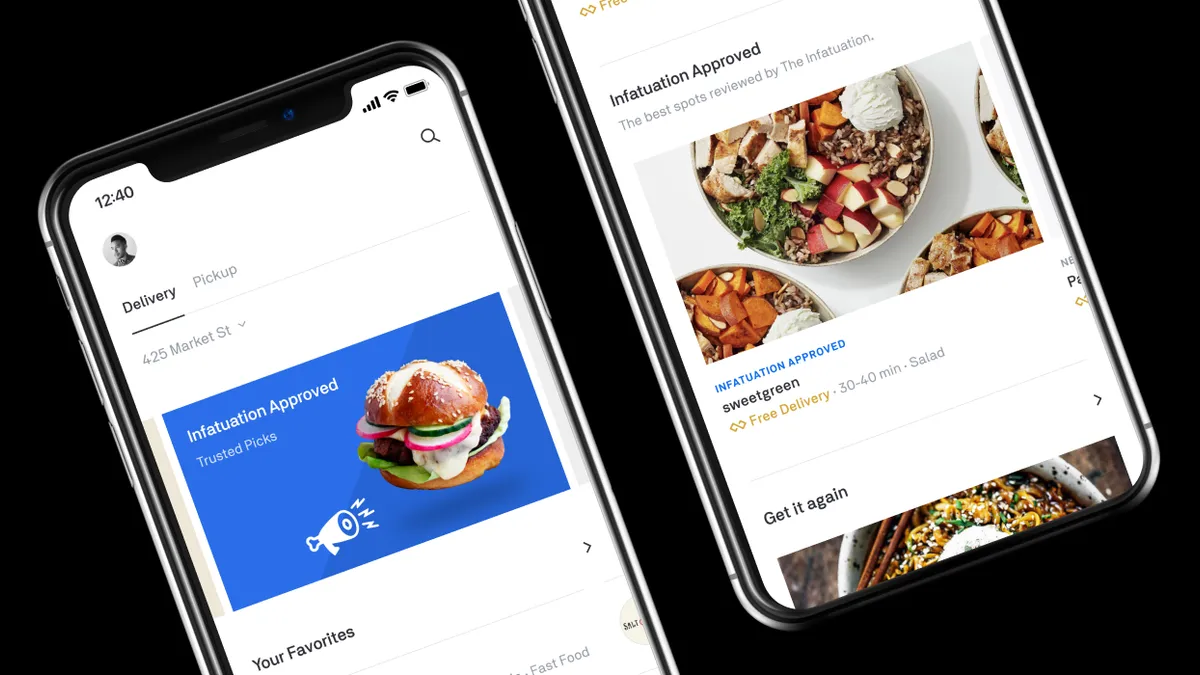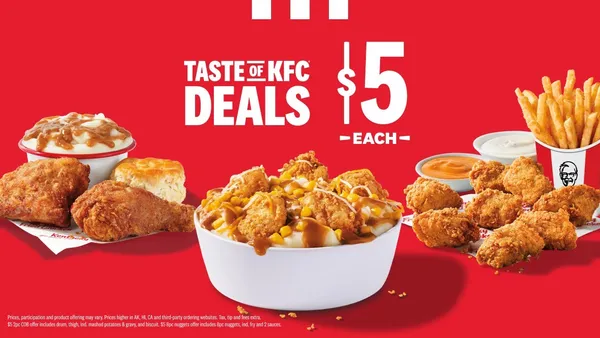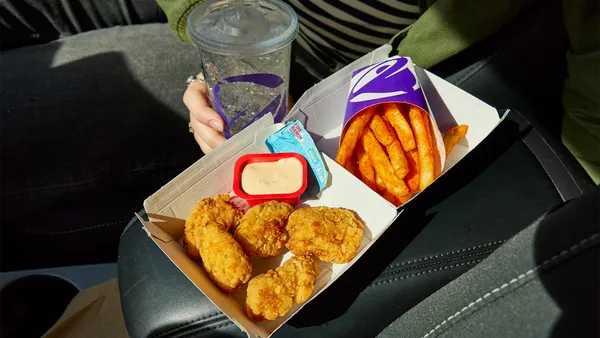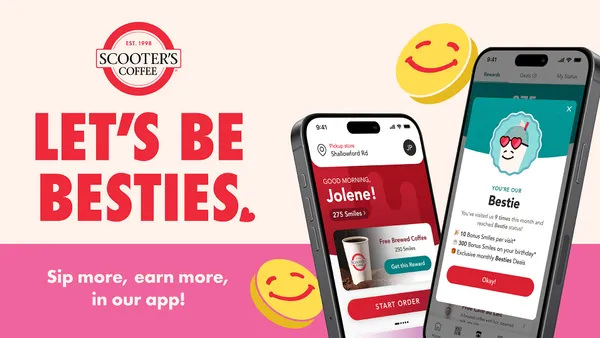Dive Brief:
- Postmates and The Infatuation, a digital restaurant discovery platform, have entered an exclusive partnership that gives Postmates users access to Infatuation reviews and ratings within the delivery app, according to a company release.
- If a Postmates restaurant has an Infatuation rating of 7.5 or more, an "Infatuation Approved" badge will appear on its app listing. In the future, users will be able to access a restaurant's full Infatuation rating when they tap on a restaurant's icon, unlocking brand details. Consumers scrolling The Infatuation's website will also be able to order via Postmates directly from its restaurant reviews.
- "The Infatuation creates trusted reviews for many of the restaurants that we serve in the U.S. and we wanted to bring that data and content to our customers," Eric Edge, SVP of brand and communications at Postmates, said in the release.
Dive Insight:
Postmates' partnership with The Infatuation is a competitive one, and the reviews it will gain could help the third-party platform differentiate from a growing contingent of rivals. It also gives it a leg up over in-house delivery services from QSR and fast casual brands, who often don't feature consumer reviews on their websites. Though an E-Poll Market Research study shows that the majority of diners still order directly from their brand of choice, Postmates' new The Infatuation badges eliminate the need to dig through social media for well-researched assessments of a chain before ordering.
Still, Postmates isn't the first to integrate reviews on its platform. Grubhub — which is the top third-party food delivery service with millennials, boasting a 41% usage rate compared to Postmates' 30% — has long featured reviews on its restaurant listings. But these reviews are from app users, not a separate platform. It's possible that Postmates' inclusion of The Infatuation's badges and eventual reviews could be perceived as a more premium offering.
This move also reflects the blurring lines between delivery, review and reservation websites. Yelp, for example, diversified its offerings with the addition of reservations, and Google stands to be a formidable opponent — offering both trusted reviews and its Reserve with Google feature and food delivery feature in Google Maps.
As consumer use of third-party delivery platforms continues to increase, it seems likely that companies will pursue similar partnerships and promotions to stand out from the crowd. The question is whether or not these offerings capture long-term converts, or just short-term buzz from diners looking for a deal.













